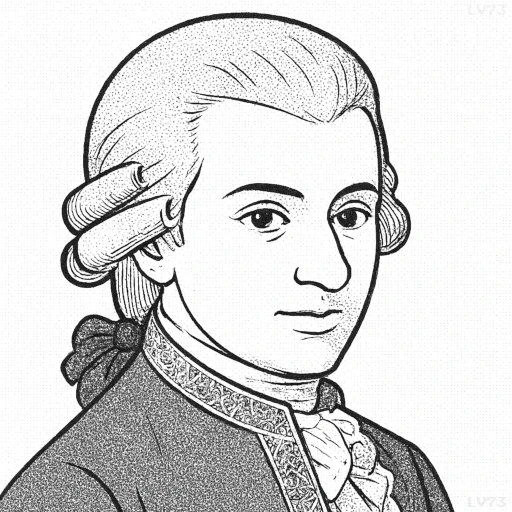“My father is maestro at the Metropolitan church, which gives me an opportunity to write for the church as much as I please.”

- January 27, 1756 – December 5, 1791
- Born in Salzburg (Austria)
- Composer
table of contents
Quote
“My father is maestro at the Metropolitan church, which gives me an opportunity to write for the church as much as I please.”
Explanation
In this quote, Mozart reflects on the privilege of having access to a prominent musical position through his father, who served as the maestro at the Metropolitan church. This connection provided Mozart with the opportunity to compose for the church and likely had a significant influence on his development as a composer. The church was an important institution during Mozart’s time, offering both financial support and a platform for composers to showcase their works, especially in liturgical settings. This relationship highlights the role of patronage and family in shaping an artist’s career during the 18th century, where connections and positions were often key to gaining opportunities for composition.
Mozart’s comment also underscores the importance of sacred music in his early career, as he was able to compose church music without the pressure of commercial success or public demand. His father, Leopold Mozart, was a respected musician and teacher, and his influence allowed Wolfgang to be immersed in a highly musical environment from a young age. Many of his early compositions, such as masses, cantatas, and motets, were for church settings. This early experience contributed to Mozart’s versatility as a composer, allowing him to explore both sacred and secular genres.
In modern times, the idea of having an influential family member or mentor to help shape one’s career is still relevant, especially in fields like classical music, film, or the arts. Mozart’s experience reminds us that opportunities are often shaped by connections, mentorship, and access to influential networks. The church as a patron of the arts has also evolved in today’s world, but there are still institutions and people that provide emerging artists with the chance to showcase their work and gain the experience needed to develop their craft.
Would you like to share your impressions or related stories about this quote in the comments section?

